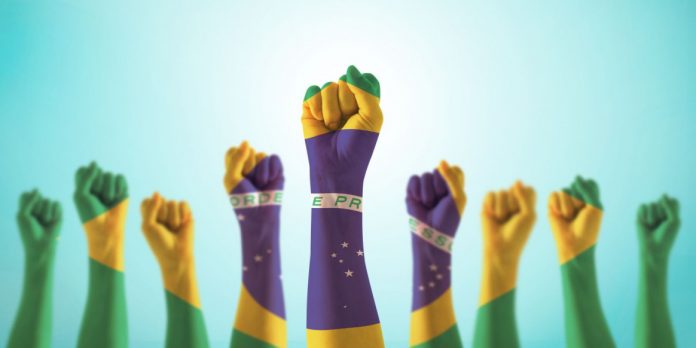Udo Seckelmann, lawyer at Bichara e Motta Advogados, shares with SBC a review of the legal considerations that must be taken into account for the regulation of the sports betting market in Brazil.
In part one of a three-part overview Seckelmann, who is also editor and writer of Lex Sportiva, member of the National Academy of Sports Law (ANDD) – Youth Commission and member of the Sports Law Commission of OAB/Barra (RJ), analyses the limitations that emerge from a market where the definition of sports betting is uncertain.
After more than 70 years of banning the exploitation of gambling in Brazil (with the exception of the state monopoly on lotteries and betting on horse racing in authorized locations), Law No. 13.756/2018 finally legalized the so-called “fixed-quota bets related to real sports-themed events” (hereinafter only “sports betting”).
According to such legal diploma, the economic activity of sports betting may be exploited by the private sector in a competitive environment, which will provide several benefits to Brazil such as the attraction of foreign investment, creation of jobs and tax collection by the country. However, such benefits will only be effectively materialized if the regulation of the activity is made in an effective manner and observing the best international practices.
To that end, a solid regulatory system must respect the wishes of the main players in the industry. In this topic, the Secretariat of Evaluation, Planning, Energy and Lottery of the Ministry of Economy (SECAP) – responsible for drafting the decree that will regulate the activity – has been adopting an exemplary posture, carrying out three public consultations to hear suggestions from the sector and from society on the topic.
The decree has not been enacted yet and, thus, sports betting remains unregulated in Brazil. However, over the past two years SECAP has disclosed two draft decrees, the first one in September 2019 (Draft 2019) and the second one in February 2020 (Draft 2020), which presented an apparent direction of what we can expect from the regulation.
In view of the above, the present work seeks to bring some brief considerations on the regulation of sports betting in Brazil, based mainly on the provisions of Law No. 13.756/2018 and on the draft decrees disclosed by SECAP to date.
Limitation of legalized games of chance
According to the Brazilian legal system, sports betting is considered a game of chance. Among the numerous existing games of chance, only sports betting has been legalized by Law No. 13.756/2018, which raises the following question: why legalize only one modality of game of chance and keep the others illegal?
The main objective of the regulation of sports betting is to attract Brazilian bettors, who currently use unlicensed operators, to the legal and regulated market. Consequently, keeping other games of chance prohibited ends up giving more strength to the illegal market.
Let’s analyze the following example: suppose that the company Sportingbet after the regulation opens a branch in Brazilian territory, complies with all the bureaucracies, respects the imposed legal parameters and obtains a license to operate. With Brazil legalizing only sports betting, the products that Sportingbet can offer to Brazilian consumers on its website are restricted.
On the other hand, the company Bet365 decided not to obtain a license in Brazil. Its website, of course, remains active and available in several countries – including Brazil – and, in addition to sports betting, it offers bingo, roulette, blackjack, casino, lottery, horse racing, etc. The profit margin channeled by the sale of these products will provide Bet365 an advantage to offer better odds on sports betting compared to Sportingbet. Although bettors are always inclined to use the licensed market, at the end of the day the vast majority will seek the best odds available online, leading to the strengthening of the unlicensed market.
The legalization of sports betting is a good first step, but it is not enough for Brazil to reach the industry’s potential. There are bills in the National Congress that seek to legalize other games of chance, but for now it is evident that the partial legalization of games of chance will end up undermining companies that, when obtaining a license in Brazil, will voluntarily accept to restrict the range of products to be offered to consumers.
Definition of “sports betting”
In the same vein, it should be noted that the regulation must also clarify which spectrum of sports betting is legalized for exploitation in Brazil. According to the definition given by Law No. 13.756/2018:
“Art. 29 – §1º The lottery modality referred to in the caput of this article consists of a betting system related to real sports-themed events, in which it is defined, at the moment of placing the bet, how much the bettor can earn in case of a correct prognosis.”
Such definition allows for several interpretations of activities that would fit this profile or not. The absence of a clear definition will certainly bring uncertainty to the Brazilian market, since there are activities exploited internationally and are considered “sports betting” but they may not be in Brazil.
For example, sports trading – exchange modality or “sports stock market” – is a product of enormous relevance in the international gambling industry. However, by the definition given by the law to fixed-quota bets, it is not clear whether this modality would be covered by the regulation.
The same occurs with platforms such as the Football Index – the “players’ stock market”, where enthusiasts buy players’ “shares” aiming at their future valorization beyond a specific sporting event. Since there is no definition of “how much the bettor can earn in case of a correct prognosis” – precisely because there is no prognosis or a specific sporting event – it is not known how the Ministry of Economy will see such activity.
Likewise EA Sports, developer of the FIFA franchise, has suffered in recent years with the micro-transactions executed within the Ultimate Team modality of the game. The so-called loot boxes, packages of athletes that can be purchased through real financial provision from the gamers – in which prevail the randomness and uncertainty of the acquired athletes, such as a slot machine – have been considered games of chance and have suffered harsh criticism in the gambling industry, mainly because they are offered to minors.
For this reason, EA Sports has lawsuits in countries such as the United States, France and Belgium – the latter blocked the sale of such product in its territory. In Brazil, the functionality remains authorized, even for minors.
Given the above, a clear definition of legalized sports betting is essential for the correct functioning of the Brazilian industry.














